- info@ficci.org.bd
- |
- +880248814801, +880248814802
- Contact Us
- |
- Become a Member
- |
- |
- |
- |
- |
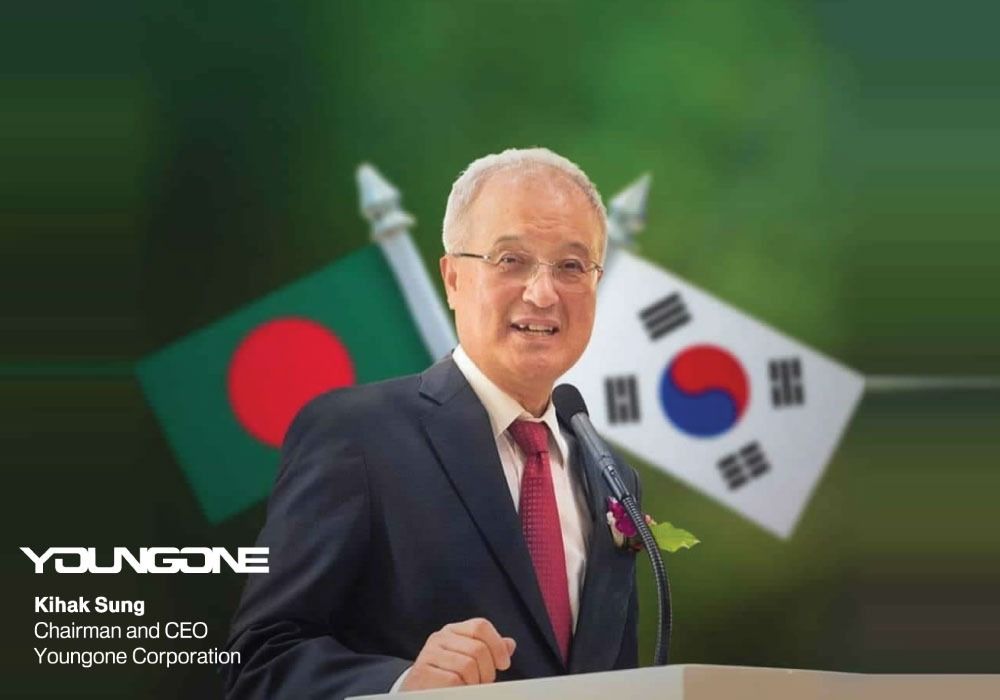
Kihak Sung, Chairman of Youngone Corporation, is a pioneer in Bangladesh's readymade garments and textile sectors, significantly contributing to its rise as a leading global exporter. Born in Seoul in 1947, Sung earned a degree in international economics from Seoul National University. His career in international trade with Seoul Trading fueled his entrepreneurial ambitions, leading to the founding of Youngone Corporation in 1974. In 1980, he established Bangladesh's first foreign-owned apparel manufacturing plant in Chattogram, marking the start of Bangladesh's transformation into a major garment production hub.
In this interview, Kihak Sung discusses Youngone Corporation's journey in Bangladesh, future expansion plans, expectations from the Interim Government to enhance FDI, current policies, advice for foreign investors, and strategies for Bangladesh to become a leading apparel-sourcing destination.
Q1. Can you share the journey of Youngone Corporation in Bangladesh and how it has evolved over the years? What were the key factors that influenced your decision to invest in Bangladesh initially?
In May 1980, Youngone started with a small factory with mostly 250 female workers in Agrabad, Chattogram. We were the first foreign investor in the apparel export industry, as well as one of the first foreign direct investors in Bangladesh before a proper export system had developed in the 1980's.
We moved to the Chattogram Export Processing Zone (CEPZ) in 1986 and began by importing raw fibers such as polyester for carding and processing, then filled them into nylon outerwear for export in volume to the Swedish markets.
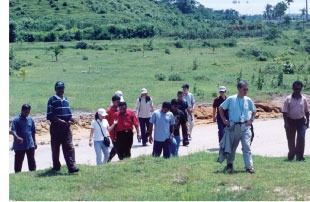 In the late '80s, we manufactured polyester padding for winter garments and supplied it to Youngone and other garment manufacturers in Chattogram.
In the late '80s, we manufactured polyester padding for winter garments and supplied it to Youngone and other garment manufacturers in Chattogram.
That was the first manmade fiber (MMF) backward linkage industry in Bangladesh. By the late 1990s, we started supplying raw materials including nylon and polyester fabrics to apparel manufacturers. We also established weaving, dyeing, and finishing facilities in Bangladesh.
We chose Bangladesh because it gave us first-mover advantage in the ready-made garment industry, as well as its GSP status for exports to Europe and the USA.
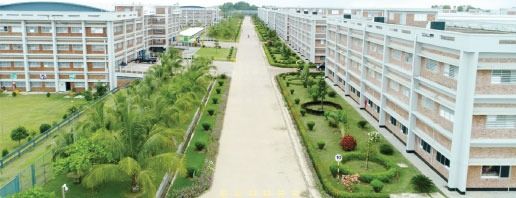
Q2. How has the investment climate in Bangladesh changed since you first started operations here? What are the main challenges you have faced while operating in Bangladesh, and how have you overcome them?
It was very difficult for us to set up a sewing factory. There was no infrastructure and no supporting facilities. Back then, no one hired women for sewing, so we became the first company to do so. We brought hundreds of technicians and management to Korea for training. Foreign experts taught Bangladeshi middle management how to run modern sewing factories and workers how to make high-quality garments.
In the mid-1980s, the import of all raw materials was blocked for 100 days to prevent the illegal trafficking of materials, causing us to lose many customers at that time. Furthermore, there was a devastating cyclone in 1991, which destroyed most of our production and machinery in our main factory. It was incredibly disheartening, but we all pulled together and rebuilt the factory, despite suffering great losses. Many of our customers remained loyal, recognizing how hard we worked to get back on track.
The resilience our works showed has moved us, resulting in investment to build multi-storied factories which may be safe even through some level of cyclones.
Compared with other countries that manufacture garments, there are various challenges, which negate the low labour rate advantage of the country. These challenges can become impediments to investments and economic development.
Despite those challenges with the help of a dedicated workforce and favorable trade conditions like GSP status for exports to the EU, our Bangladesh operations have evolved steadily. Over the years, our commitment to invest in new technologies and innovation, strong supply chain management, sustainable business practices, and community development have shaped our operations and growth in the country. Youngone has helped Bangladesh to become one of the world’s leading ready-made garment exporter.
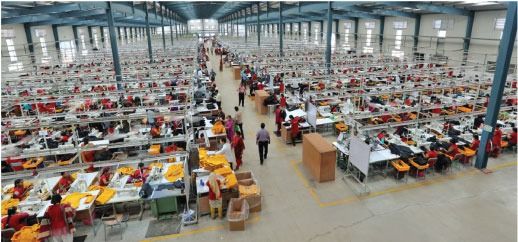
Q3. In light of recent mass uprisings, what are your expectations from the Interim Government of Bangladesh to enhance foreign direct investment?
We believe that restoring the confidence of foreign investors is a priority task for the Interim Government.
As a foreign investor, our primary expectations revolve around stability, transparency, and conducive policies that foster a sustainable business environment. Specifically, I would highlight the following areas:
Political Stability: Ensuring a stable political climate is crucial for attracting and retaining foreign direct investment. A commitment to peaceful dialogue and resolution of conflicts will instill confidence in investors.
Transparent Governance: Transparency in governance and regulatory processes will enhance trust among foreign investors. Clear communication regarding laws, regulations, and any changes to policies is essential for informed decision-making.
Supportive Economic Policies: We expect the Interim Government to implement policies that promote economic growth, such as equal treatment for foreign investors, streamlined processes for business registration, and support for industries that align with global sustainability goals. Besides easing policy support, the government must prioritize the long-time foreign investors who have already invested in the country - like Youngone - rather than always looking for FDI’s from new sources. New investors need much more time to assess and invest in a country. Whereas, long-term investors always reinvest, which is, of course, a pivotal plus point for a sustainable FDI in the country.
Infrastructure Development: Continued investment in, for the sake of effective FDI inducement customs, infrastructure—such as transportation, power supply, and logistics—will facilitate smoother operations for businesses and improve overall competitiveness.
Promotion of Social Stability: Addressing social issues and ensuring the protection of human rights will contribute to a more stable environment for business operations, ultimately benefiting both local communities and investors alike.
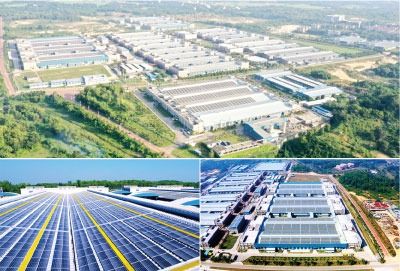
Q4. What future plans does Youngone Corporation have for expansion and diversification in Bangladesh?
Today, in the Korean EPZ, we have already established facilities of over 650,000 square meters of which 120,000 square meters are used for producing MMF with circular knitting, warp knitting, weaving, dyeing, finishing, and lamination works. We have commenced work on an additional 80,000 square meters, which will become a milestone in the Bangladesh MMF backward linkage industries. We have already employed over 72,000 people in Bangladesh from Dhaka to Chattogram including Korean EPZ. We are in the process of establishing a medical complex that includes a 500-bed hospital, medical college, and nursing college on the site of our KEPZ, as well as a textile and fashion college for the long-term growth and development of the ready-made garment industry in Bangladesh. And we have the largest rooftop solar array in Bangladesh, generating around 40 megawatts to support our sustainability goals, which eventually will increase to 60 megawatts.
Our upcoming investment project in MMF backward linkage is planned for ‘recycled’ fiber production. This fiber production business will require a large-scale investment and most importantly, conducive administrative support by the Bangladesh Government.

Q5. What are your views on the current policies and regulations in Bangladesh regarding foreign investment? Are there any areas that need improvement?
From our perspective, this is a highly competitive industry and there are many other countries that would like to attract FDI. In order to stay ahead of the competition, the Interim Government should focus on speed, simplicity and transpar- ency. Both for existing investors and potential future investors. Bangladesh has many advantages, but removing barriers and uncertainty will help to encourage ongoing FDI. Clear, prompt communication and consultation with investors about changes or new policies is also essential for smooth operations resulting in better performance and further investment.
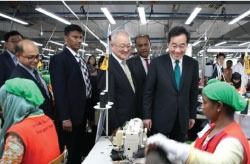 Q6. What advice would you give to other foreign investors to consider Bangladesh as an investment destination?
Q6. What advice would you give to other foreign investors to consider Bangladesh as an investment destination?
We are deemed to have a successful business in Bangladesh but it has taken patience and perseverance. We would advise potential investors to conduct their due diligence to fully understand the opportunities and the challenges. We would also advise investors to be patient and flexible. Above all, we recommend taking a long-term approach and ensure sustainability is at the center of everything you do.
Q7. How can Bangladesh position itself as a leading apparel-sourcing destination while addressing existing challenges?
Although the Ready Made Garments (RMG) industry is well-established under weak administrative laws and physical infrastructure, other industries will have difficulties competing regionally and globally due to the declining image of the country, complicated administrative procedures, discriminative incentives for investment, and the lack of infrastructure e.g. port and electricity. First and foremost, Bangladesh needs to have more market-oriented and investment-friendly policies and practices.
Bangladesh should never abandon cotton-based garments, rather it should go for R&D to improve its strength here as demand for cotton will never run dry. At the same time, the industry should diversify other high-end apparel products adding man-made fiber components to cotton products, which will give it an advantage in the global readymade garment market.
The RMG industry cannot afford to become complacent. Entrepreneurs must realize that cotton is not the leading fiber in the market anymore. Rather MMF products like polyester is taking the lead in global fashion trends and growing faster.
Local manufacturers have been producing polyester and cotton blends for same time, but they can improve further. There are other man-made fibers like nylon, acrylic, natural fibers, viscose, rayons, etc. We must continue to innovate to protect and expand our position with global brands in the international market.





